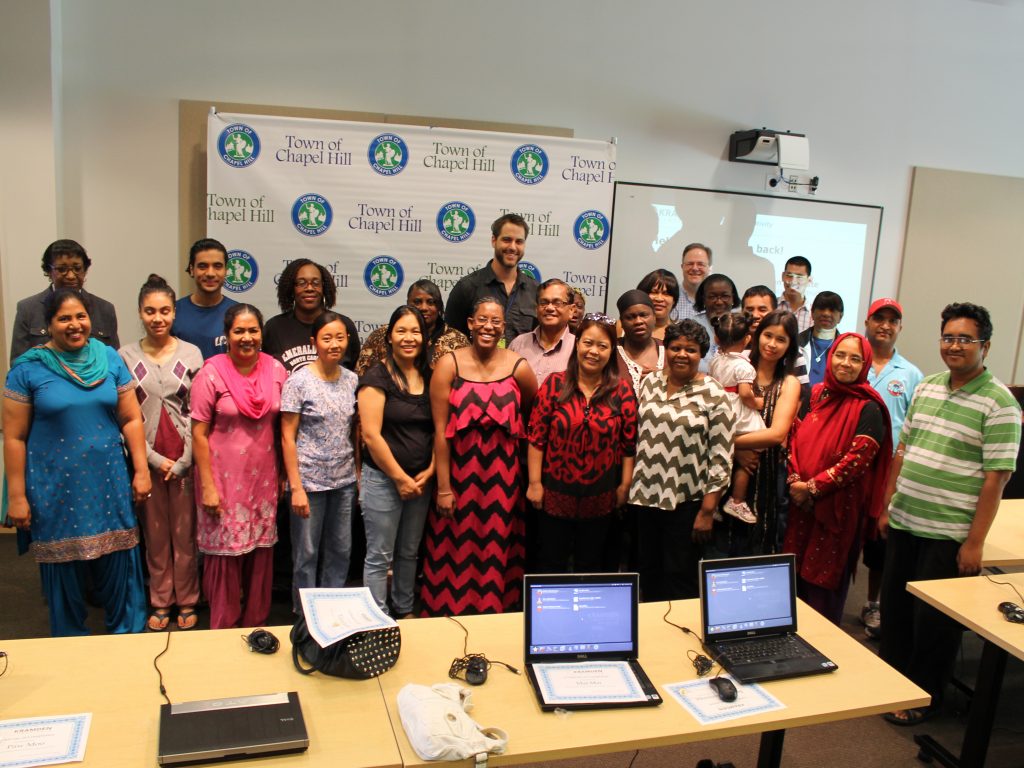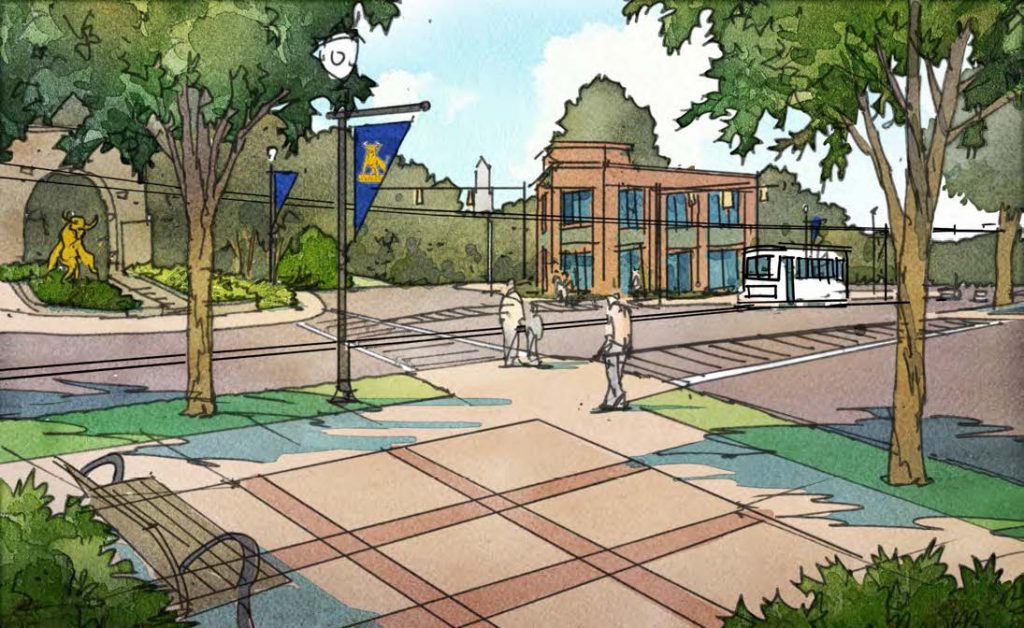
It wasn’t a grand setting for a groundbreaking announcement – the basketball court of the South Estes public housing community in Chapel Hill. Eager volunteers stood at folding tables under the hoops ready to sign up residents for digital literacy classes and announce the Town’s new effort to bring free internet to all public housing residents. Trays of sausage and chicken biscuits, and jugs of sweet tea sat ready for an estimated 100 people.










